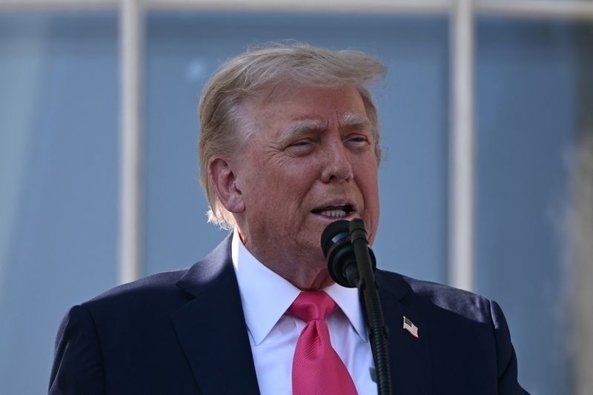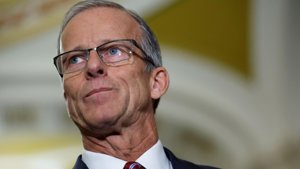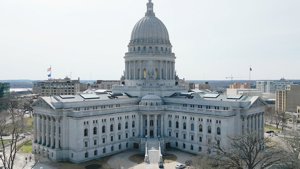
Trump Defends ‘Shylock’ Term Amid Antisemitism Controversy
Trump faces criticism for using the term “shylock” at a rally, defending it as a banking reference amid antisemitism accusations.
Rally Remark Triggers Antisemitism Debate
President Donald Trump is under fire for using the term “shylock” during a recent rally in Iowa, only hours after Congress passed his signature One Big Beautiful Bill Act. The president invoked the term while highlighting provisions in the bill that eliminate estate taxes and borrowing burdens, saying, “No death tax, no estate tax, no going to the banks and borrowing some from, in some cases, a fine banker and in some cases, shylocks and bad people.”
The term “shylock” originates from Shakespeare’s ‘The Merchant of Venice’ and historically refers to the villainous Jewish moneylender in the play. Over time, it evolved into a pejorative for greedy lenders and is widely considered an antisemitic slur, especially when linked to Jewish stereotypes.
Trump’s use of the word did not prompt immediate response from the Iowa crowd, but it quickly fueled a firestorm online. Asked by a reporter about the antisemitic connotations, Trump responded, “No, I’ve never heard it that way. To me, a shylock is somebody that’s a moneylender at high rates. I’ve never heard it that way. You view it differently than me. I’ve never heard that.”
Jewish Groups, Lawmakers React
The Anti-Defamation League (ADL), a leading Jewish advocacy group, condemned Trump’s language, stating, “President Trump’s use of the term is very troubling and irresponsible. It underscores how lies and conspiracies about Jews remain deeply entrenched in our country. Words from our leaders matter and we expect more from the President of the United States.”
Representative Jerry Nadler, a Jewish Democrat from New York, echoed the ADL’s sentiments, calling the term “one of the most recognizable antisemitic slurs in the English language.” Nadler added, “It’s a centuries-old trope that has fueled discrimination, hatred and violence against Jews for generations. I condemn Donald Trump’s dangerous use of this blatantly antisemitic slur and his long history of trafficking in antisemitic tropes.”
However, some conservative voices countered the criticism. Commentator John Podhoretz accused Nadler of hypocrisy, referencing his support for a controversial mayoral candidate and questioning what Nadler has done for the Jewish community. “At best Trump said Shylock the same week he destroyed Iran’s nuclear program. What have you ever done for the Jews, Jerry?” Podhoretz wrote.
Trump has made combating antisemitism a prominent part of his campaign platform, particularly focusing on college campuses and immigration policy. In January, he signed an executive order mandating that federal agencies use all available tools to address antisemitic harassment and violence in higher education. His administration has launched investigations into several universities, threatening to pull federal funding if antisemitism is not adequately addressed.
Trump’s family ties also drew attention. His daughter Ivanka converted to Orthodox Judaism and is married to Jared Kushner, who is Jewish. Critics, however, argue that actions and language from leaders must meet a higher standard.
Notably, Democrat Joe Biden also apologized in 2014 for using the term “shylock,” calling it a “poor choice” after facing backlash.
As the debate continues, the incident highlights how language used by public figures is scrutinized and how leaders’ words can influence perceptions of prejudice and inclusion in American society.






